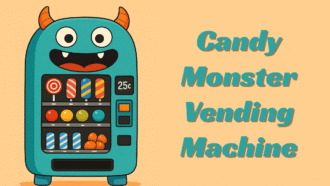The Role of Fax Machines in Business Communication
In an era where instant messaging and emails seem to dominate business communications, one may wonder about the relevance of seemingly antiquated technologies like fax machines. Yet, surprisingly, the fax machine has persisted as a stalwart companion in many sectors, illustrating resiliency and utility that newer technologies have not fully supplanted. The reasons for this enduring presence are multifaceted, ranging from legal requirements to ingrained business practices. Below, we delve deeper into why fax technology still holds an essential role in professional communication today.
Understanding the Endurance of Fax Machines in Modern Business

The steadfastness of fax technology in the contemporary business landscape can be attributed largely to its simplicity and reliability. Throughout decades, fax machines have allowed organizations to send and receive important documents rapidly without the complexities or security worries inherent in other forms of electronic transmission. The tactile nature of faxing, where physical documents are scanned and reproduced almost instantaneously on the other end, provides trust in the transference of unaltered information.
Moreover, the legacy of fax machines is entrenched in certain industries, such as law and healthcare, where original signatures and confidential materials are frequently exchanged. In these sectors, the legal recognition of faxed documents as equivalent to original signatures further cements their necessity. Also, fax technology has stayed current by often incorporating digital enhancements, thus bridging traditional methods with modern expectations.
The Impact of Fax on Security and Compliance in Communication
Fax machines often feature prominently in discussions of secure communications due to their direct line of transmission. The technology operates on the public switched telephone network (PSTN), deterring many cyber-attacks common on internet-based platforms. For sensitive information, this means a lower risk of interception by unauthorized parties during transit.
Compliance with legal and regulatory standards further solidifies the role of fax machines in business communications. Certain laws and regulations specify that businesses must use secure methods when transmitting private information. Fax machines are frequently deemed compliance-friendly because the transmission is harder to intercept than many forms of digital communication, assuring a higher level of privacy and security.
The Health Insurance Portability and Accountability Act (HIPAA) in the United States is an excellent example of such regulations, setting stringent guidelines for protecting sensitive patient data. Due to these compliance requirements, medical facilities often utilize faxing over email, trusting its security protocols over more modern yet potentially vulnerable digital methods. This precaution is critical, as data exposure could have profound privacy implications.
Exploring Fax Technology and Its Integration With Email Systems
Technological evolution has not bypassed fax machines, which have adapted to the digital environment through integration with email systems. This hybrid approach capitalizes on the familiarity and dependability of fax while leveraging email’s global reach and convenience. Users can now send and receive faxes directly from their email accounts, which translates to improved efficiency and a more streamlined workflow.
The merger of fax and email systems has given birth to online fax services, where users can manage their faxing needs without the physical machine. This digital transformation has allowed businesses to maintain the advantages of faxing such as security, legality, and reliability—while enjoying a paperless office’s environmental and space-saving benefits. These online services preserve and extend the traditional fax’s future into the digital realm.
One of the most significant advantages of online faxing is its accessibility. Any device capable of accessing email can send and receive faxes, thus eliminating the need for a physical fax machine and dedicated phone line. The convenience of this approach is particularly evident for remote workers and businesses that operate across multiple locations.
The Advantages of Fax Machines for Reliable Document Transmission
Fax machines boast a reputation for reliably and efficiently delivering documents. The technology is innately resilient to many of the pitfalls that can affect digital communications, such as server downtime or email spam filters, which can impede timely delivery. In the world of business, where time is often of the essence, this reliability is invaluable.
In addition, the direct nature of fax transmission ensures that documents reach their intended recipient without the convolutions that sometimes characterize email exchanges. The immediacy with which a recipient can confirm receipt and review a document cannot be understated, particularly in operational scenarios that demand swift action and response.
Overall, fax technology’s resilience in the face of rapid digital evolution is a testament to its intrinsic value. As businesses worldwide continue to leverage traditional and innovative means of communication, the fax machine’s legacy remains secure, reflecting an adaptability that ensures its continued relevance in the corporate world.

















